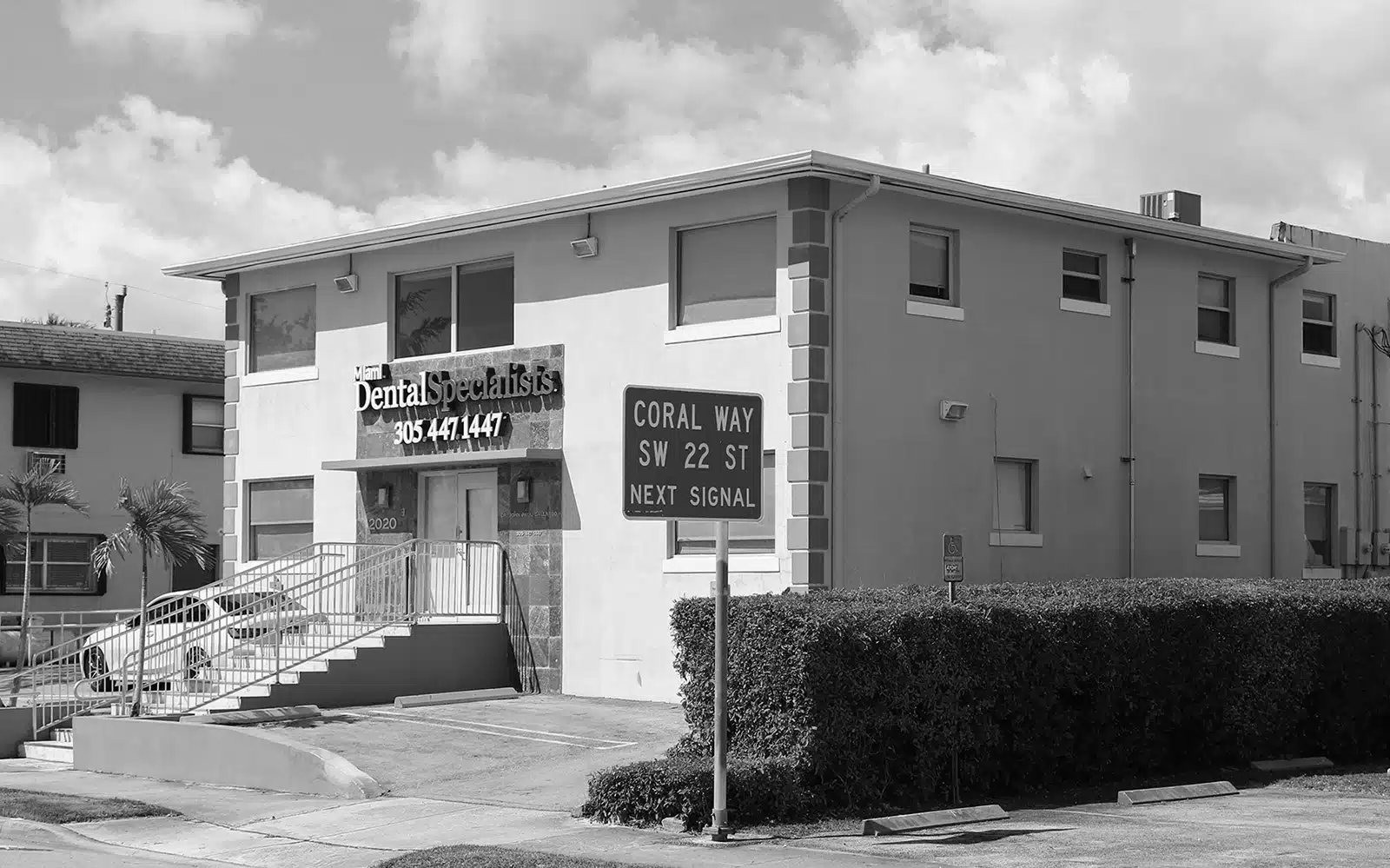
Worried about nerve damage from wisdom tooth surgery? You’re not alone. Yes, wisdom teeth removal can cause nerve damage, but it’s extremely rare. In the vast majority of cases, the extraction procedure is safe, and potential complications are minimal, especially when performed by a skilled and experienced oral surgeon.
Still, it’s important to understand what nerve damage involves, how to spot symptoms early, and how it can impact your overall oral health. Whether you’re preparing for surgery or recovering from it, being informed is the first step to peace of mind.
How Common is Nerve Damage After Wisdom Teeth Removal?
Like with all other teeth, nerve damage after wisdom teeth removal is relatively uncommon. Temporary nerve issues, such as tingling or numbness, occur in about 5% of cases and often resolve on their own within a few weeks or months. Permanent nerve damage is even rarer, affecting less than 1% of patients. Factors that can increase the risk include being over the age of 25, having deeply impacted wisdom teeth, and dealing with complex or curved root structures. Choosing an experienced oral surgeon is key to minimizing this risk.
What Dental Nerve Can Be Damaged During Wisdom Teeth Removal?
Several important nerves run close to the lower wisdom teeth, and while damage is rare, it’s helpful to understand which ones may be affected. These nerves control sensation in the lips, chin, tongue, and lower teeth. Knowing their role and location can help you better understand the nature of any symptoms or concerns that may arise after surgery.
Trigeminal Nerve
The trigeminal nerve is the largest cranial nerve and is responsible for sensation in the face, including the mouth and jaw. It branches into three major divisions, two of which, the mandibular and maxillary branches, are relevant to dental procedures. While direct damage to the main trigeminal nerve during wisdom tooth removal is rare, its branches are more vulnerable. When affected, patients may experience altered sensation or tingling in the lower face, although symptoms are typically temporary and improve with time.
Inferior Alveolar Nerve
The inferior alveolar nerve is a branch of the mandibular division of the trigeminal nerve. It runs through the lower jawbone and provides sensation to the lower teeth, chin, and lower lip. Because it lies close to the roots of the lower wisdom teeth, it is the most commonly affected nerve during extraction. If irritated or injured, patients may experience numbness or tingling in the chin and lip. Most cases are temporary, but more serious nerve injuries may require further treatment or evaluation.
Lingual Nerve
The lingual nerve runs close to the lower third molars and is responsible for taste sensation in the tongue, particularly the front two-thirds. During wisdom tooth removal, especially if the tooth is deeply impacted or the extraction site is near the nerve, there’s a small risk of injury or irritation. Damage to the lingual nerve may result in constant numbness, tingling, or altered taste on one side of the tongue. These symptoms are typically temporary but can be longer-lasting in rare cases.
Symptoms of Nerve Damage After Wisdom Tooth Extraction
Recognizing the signs of nerve damage early can make a significant difference in treatment and recovery. Some symptoms may appear immediately after the surgical procedure, while others develop gradually. It’s important to note that many of these symptoms are temporary and resolve on their own, but persistent or worsening issues should always be evaluated by a dental professional.
Persistent Pain During Recovery
While some discomfort is normal after wisdom tooth removal, persistent or escalating pain and swelling may be a sign of nerve irritation. This type of pain often feels sharp, burning, or tingling and may not respond well to standard over-the-counter pain relief. If the discomfort doesn’t improve after a few days or becomes more intense, it’s important to contact your oral surgeon to rule out nerve involvement and determine the best course of treatment.
Loss of Sensation and Numbness
One of the most common signs of nerve involvement is numbness or a loss of sensation in areas like the lower lip, chin, tongue, or inside the mouth. This may occur immediately after surgery due to swelling or temporary nerve pressure. While this feeling often resolves within days or weeks, persistent numbness lasting more than a few weeks should be evaluated. It could indicate a more significant nerve disturbance that might benefit from early intervention.
Difficulty Moving the Lips or Tongue
In rare cases where motor nerves are affected or inflammation is significant, patients may notice trouble moving their lips or tongue normally. This could present as slurred speech, difficulty eating, or a general feeling of weakness in the affected area. While often temporary and linked to post-surgical swelling or nerve irritation, persistent issues should be assessed by your dental surgeon. Early treatment can improve the chances of full recovery.

How Can I Manage Nerve Pain After Wisdom Tooth Removal?
Managing nerve pain after wisdom tooth removal starts with following your oral surgeon’s post-operative care instructions closely. Over-the-counter pain relievers like ibuprofen can help reduce inflammation and discomfort in mild cases. For more persistent pain, prescription medications, including corticosteroids or nerve-specific drugs, may be recommended. Applying cold compresses, avoiding irritating foods, and getting plenty of rest can also aid recovery. If symptoms last beyond the expected healing period, consult your dental specialist to explore further treatment options or referrals to a nerve specialist.
Can You Fix Nerve Damage From Wisdom Tooth Removal?
In many cases, nerve damage from wisdom tooth removal can improve or fully resolve over time, especially if it’s mild, temporary, or just minor nerve injuries. For more serious or prolonged symptoms, treatment options may include medications that support the nerve healing process, physical therapy, or, in some cases, referral to a specialist in oral and maxillofacial surgery or neurology. Advanced interventions like microsurgery may be considered in rare instances of severe, persistent damage. Early diagnosis and a proactive treatment plan greatly improve the likelihood of recovery.
How to Lower the Risk of Nerve Damage From Tooth Extraction
While nerve damage from wisdom tooth surgery is rare, taking a few precautionary steps can make the risk even smaller. From pre-surgical planning to post-operative care, each action plays a role in protecting your nerves and promoting a smooth recovery.
- Get a Thorough Dental Evaluation: Before your surgery, your dentist or oral surgeon should evaluate the positioning of your wisdom teeth using X-rays or 3D imaging to identify any proximity to nerves.
- Follow Pre-Operative Instructions: Carefully adhering to instructions about medications, eating, and dental hygiene before surgery helps reduce inflammation and surgical complications.
- Choose the Right Timing: Younger patients typically experience fewer complications. If your dentist recommends removing your wisdom teeth early, don’t delay the procedure unnecessarily.
- Improve Your Oral Hygiene: Keeping your mouth clean before and after surgery helps minimize infection and inflammation that could affect healing and nerve function.
- Monitor Post-Surgical Symptoms: Report any unusual numbness, pain, or changes in sensation to your surgeon right away. Prompt attention can prevent long-term issues.
- Choose an Experienced Specialist: An experienced oral surgeon is trained to navigate nerve-sensitive areas with precision. Their expertise significantly lowers the chance of complications and leads to better outcomes overall.
Choosing an Expert Dentist for Your Wisdom Teeth Extraction
The success of wisdom tooth extraction depends heavily on the surgeon’s skill and experience, especially when nerves are involved. A knowledgeable professional can assess your risk factors, plan the extraction carefully, and use precision techniques to avoid further complications. This level of care is what helps ensure a smoother recovery and long-term comfort.
With over 25 years of specialized experience, Dr. John Paul Gallardo, DDS, PA, stands out as one of South Florida’s most trusted experts in dental implants, oral surgery, and periodontics. At Gallardo Periodontics and Implant Dentistry, our state-of-the-art facility offers advanced technology and IV conscious sedation dentistry for a safe, comfortable experience. Call us today at 305-447-1447 or visit our contact page to schedule your consultation.